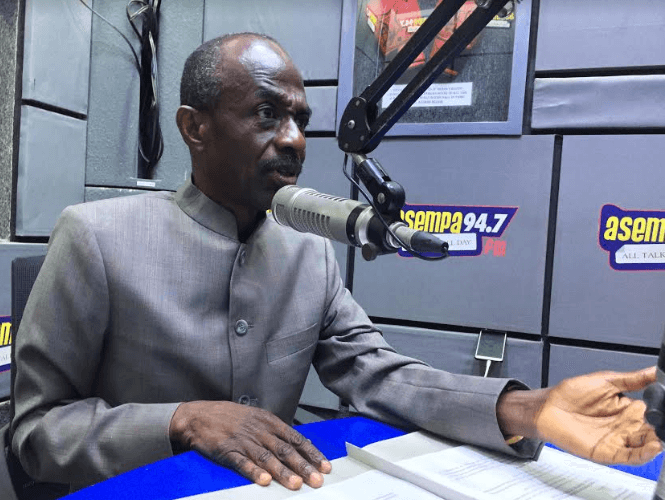General Secretary of the National Democratic Congress (NDC), Mr Johnson Asiedu Nketia has said Civil Society Organisations (CSOs) must take the plaudits for the passage of the Right to Information Bill, not politicians.
“The praises should go to (CSOs) and not any politician,” he said and observed that all two parties to have governed the country have shown cold feet in getting the 19-year-old bill passed.
“Politicians on all sides of the divide have a morbid fear of releasing information,” the former Member of Parliament (MP) confessed on Joy News’ Saturday news analysis show, Newsfile.
He recalled a time when any information on the budget was a closely guarded secret.
A Ghana News Agency reporter was arrested and detained for years for releasing economic information, veteran journalist Kweku Baako chipped in.
Mr Nketia recalled the Right to Information (RTI) bill first came to his attention in 1999, when he was an MP in Parliament. Public advocacy for the law operationalising a constitutional right for public information had began and was growing.
The bill, drafted under the auspices of the Institute of Economic Affairs, was reviewed in 2003, 2005 and 2007 and introduced on the Floor of Parliament on February 5, 2010.
And that is where it has stayed in Parliament – the Floor. Rising through the deliberative ranks of Parliament -first reading after which it is referred to a special committee which reports on the bill triggering a Second Reading in Parliament.
It then reaches the Consideration stage where it is set up for a formal Motion and a vote.
The RTI bill got to this stage in December 2016, marking its most progressive stage in the process since 2010.
The bill collapses at the Consideration stage.
And it would restart its journey to become law under the new Akufo-Addo-led New Patriotic Party government.
Under the watchful eye of the RTI coalition, an amalgamation of CSOs to advocate the bill’s passage, MPs would reconvene in Parliament. At times, there was a whole media blitz in Parliament.
And some antics too in Parliament as Adansi Asokwa MP, Kobina Tahir Hammond, would scatter deliberations on the bill by pointing out Parliament had no quorum to discuss the bill. A quorum that would not be pointed out on other businesses of Parliament.
But, on March 25, 2019, late Monday night, Parliament passed the bill into law in what the Second Deputy Speaker of Parliament, Mr Alban Kingsford Bagbin, who presided over its passage, called a “landmark achievement.”
The law now awaits President Nana Akufo-Addo’s accent to become an Act of Parliament.
But, that is not all, MPs inserted a transitional provision that woud make the law operational after 12 months.
“I don’t see any reason why for this particular bill they have to put this 12 months thing in it,” Mr Nketia said.
The NDC General Secretary said he could not understand the reasoning behind the transitional provision.
It confirmed his suspicion that it is too early to celebrate the passage of the law.
Explaining the psyche of politicians, he said, no politician would want to be the first to start implementing the law which could open up government to public embarrassment if the sunshine transparency is permitted.
The 12 months start when the President accents. The Akufo-Addo government ends its first tenure after the December 2020 elections.


